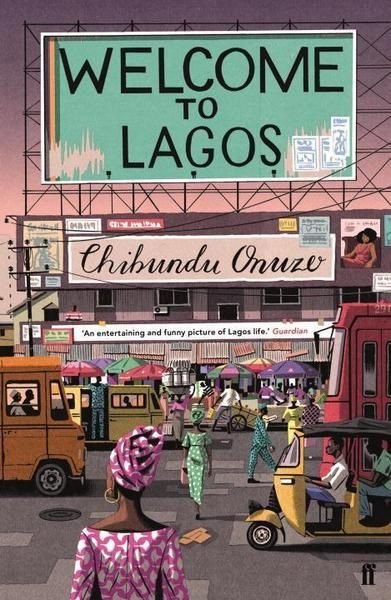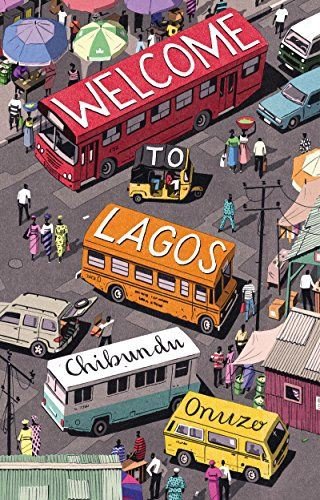My Opinion On Welcome To Lagos.
Dearest Gentle Readers✨
I didn't quite know what to expect when I first opted to read this book. Undoubtedly, I was drawn in by its creative title and artistic cover, but I was still uncertain as to what adventure the book held within its pages.

As someone who lives in Nigeria(and had never been to Lagos), Lagos has always been seen as a place where you could become wealthy. It is believed that no matter where you come from, if you wanted a change from your current financial status, you just had to go to Lagos, and your journey to wealth began. Nobody really talks about the challenges of living in Lagos; ranging from over-population to the extra amount of effort one has to put in just to achieve day to day goals.
It is one thing to be told of the glitz and glamor you could have access to in Lagos, and quite another to see, and finally understand the lifestyle you have to forfeit/adapt to when you eventually get there.
"Welcome to Lagos" is told in a third person point-of-view by an omniscient narrator. I would say that it is a remarkable choice by the author, because this means that the narrator has access to the thought process, feelings, and background information of all characters in the book, in order to share them directly with the reader.
Not only do I find that it is such an amazing narrative style for this kind of book, it helps the readers gain a better appreciation of the decision of each of the characters.
The author introduces the novel, in the Niger Delta, where an officer in the Nigerian Army named Chike Ameobi and his fellow soldier Yemi Ọkẹ are asked to burn down a village full of civilians. I felt a sudden jolt of revulsion at this point, because I began to imagine the number of villages with innocent civilians that had been burned down, because someone somewhere gave the order.
Unable to carry out the task, they desert their post, and begin making their way to the city of Yenagoa. On the way, they encounter two young people, a teenage girl named Isoken who had been separated from her parents and a young militant, Fine boy, who Isoken swears wanted to rape her. The ragtag group decide to continue on their journey together to Yenagoa, and then to Lagos.
On the bus to Lagos, Chike meets Oma, a woman who had just left her abusive and violent husband.
The five of them begin their journey to the ‘land of promise’-Lagos-in search of a new beginning and a better life.

My Opinion
I had a few issues with this book. When I started reading, I expected it to focus more on Lagos itself, the beauty and ugliness of living in Lagos. Instead, it focused more on the character’s experience, which is totally not a bad thing, but fails to capture the essence of the book's title.
Another aspect of the book, I have issues with, is in the character development. It is a little disappointing that for a book that holds so much promise, we do not fully understand the characters.
First, there's Chike and Yemi, whose sudden friendship is not understood by the reader. Chike is Yemi's superior, and we do not get to see where they bond enough as friends, to understand why they would suddenly decide to run away to Lagos together.
There's also Isoken and Fineboy. We barely got to know their character. There is no backstory about them, and they just seem to come out of nowhere in the novel. Let's not even talk about the fact that Fineboy seems to have a vague American accent. Totally off point for me.
Many of the characters are underdeveloped, and you're forced to wonder how you'll better understand them without knowing them.
For a book that was written in the third person narrative, I feel a judicious work would have been done in the character development department. It definitely would have made the book much more appealing to readers.
However, the characters in this book lack behavioral depth, they show no complexity of thought, and no self-induced will power in their actions. It is very easy to predict their actions, and their conversations and dialogue are overshadowed by a need to conform to the will of the writer, rather than the demands of the city and the reality in which they find themselves.
Apart from the character development, there were a few good things about this book. I loved how the author called out the Nigerian government on the grounds of corruption, embezzlement and other social vices. She does this through Ahmed Bakare, who although is from a wealthy family, uses his paper, "The Nigerian Journal'', to tell truths about the government, politicians and powerful people. He faces a lot of opposition, but it leads to the exposure of corrupt politicians, especially the Minister of Education who embezzled a huge amount of money.
If I'm being honest, I didn't have any favorite character in this novel, as none of them stood out enough for me. I admired Chike as a character, but he had too many lapses that I just couldn't ignore.

Recommendation
I would rate this book a fifty percent, as there was so much more I expected from it. I wish the author would have had a better character representation, and demonstrated an accurate reality of what living in Lagos means.
I wouldn't exactly recommend the novel but it could be a great start for anyone who is curious about Lagos·Nigeria to be specific as a few glimpses are portrayed in the novel.
Love 🤍
Posted Using InLeo Alpha
It's such a disappointment that a book with such catchy title turned out to be like that. I took have problems with characters that just come out from nowhere and the author expects us, the readers to feel okayy with it. What's the purpose of reading what will get us confused at one point?
Exactly my thought too. Character development is always a necessary addition as it helps to ease the pressure on readers.